Flume Gorge in Lincoln, New Hampshire
The Flume Gorge in Lincoln, NH, is a must-see for anyone visiting Franconia Notch. Planning a visit? Here’s what you’ll find at this favorite White Mountains outdoor attraction.
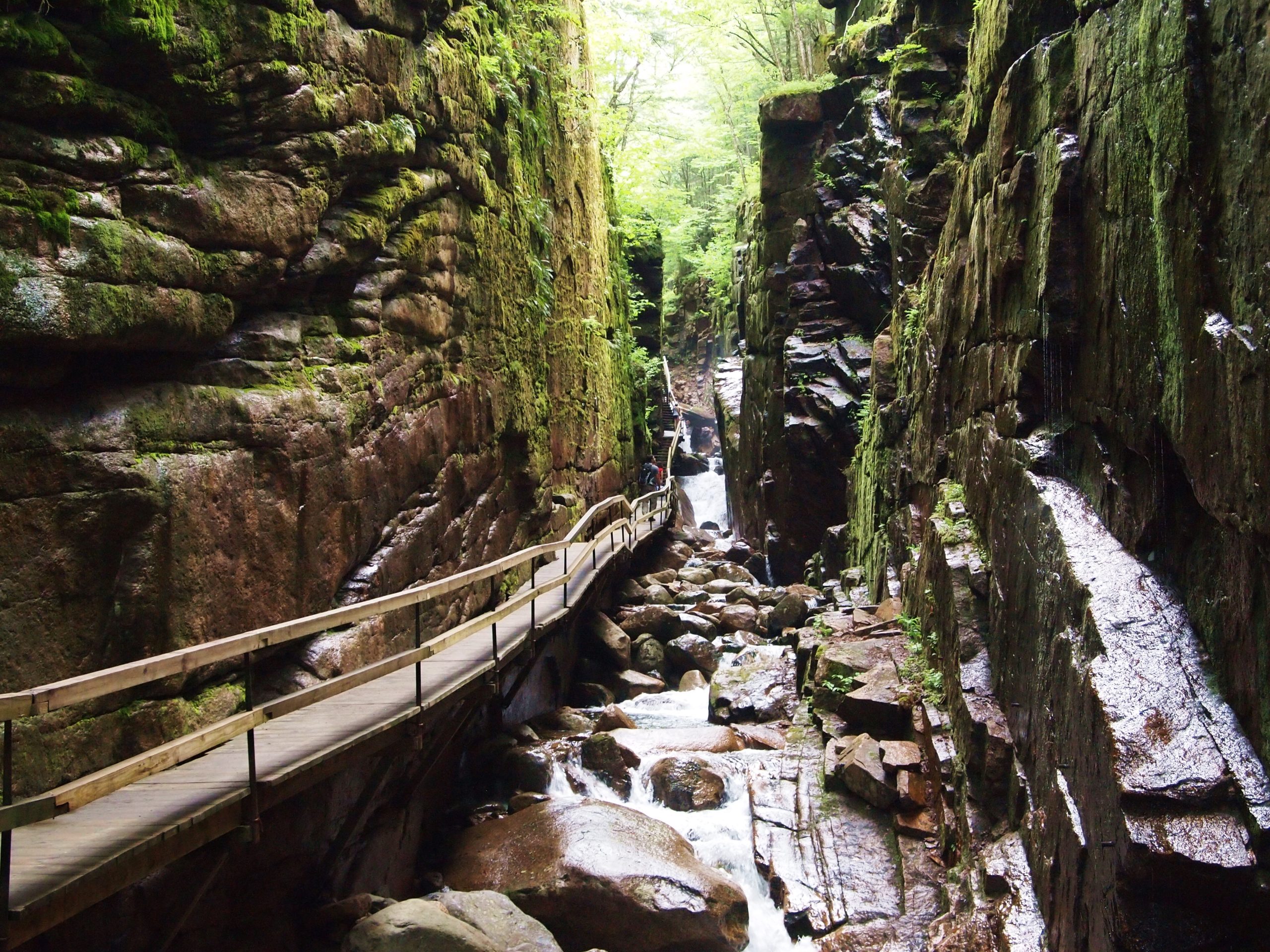
Coffee By Design | Portland, Maine
Photo Credit : Katherine KeenanNinety-three-year-old “Aunt” Jess Guernsey was stunned (and in extraordinary shape for her age, we’d say). She had taken the warm June day to explore the land surrounding her family’s new homestead, and was following the sound of running water to what she hoped would be a new fishing hole. What she found instead was amazing and unexpected. Looking up, she saw a chasm unlike any other. 800 feet long and up to 90 feet tall in some places, Aunt Jess had never seen anything like it. That was in 1808. The rest, they say, is history.
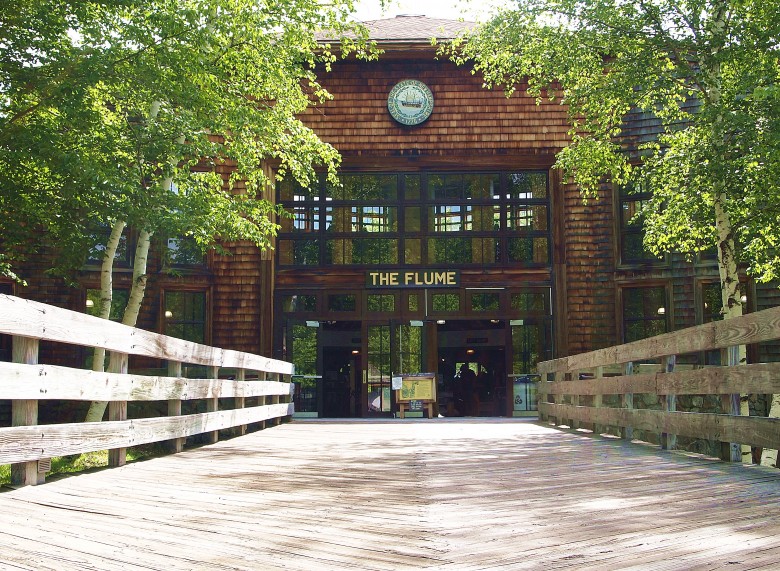
Photo Credit : Bethany Bourgault
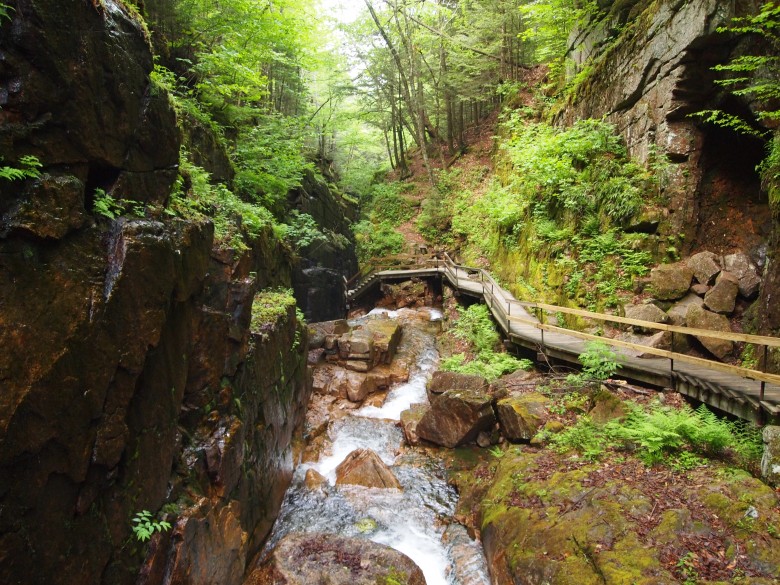
Photo Credit : Bethany Bourgault
While fishing at the Flume is no longer permitted, marveling at it is certainly encouraged, and countless amateur explorers rightly do so each year. An easy, interactive, two-mile trail loop makes visiting the gorge a family-friendly outdoor adventure, while a shorter, even more accessible path leading straight to the gorge makes this breathtaking natural wonder available to almost anyone. Several waterfalls, natural cave-like rocks, and a classic 1886 covered bridge add to the magic of the Flume, though nothing quite compares to the walk through the gorge itself.
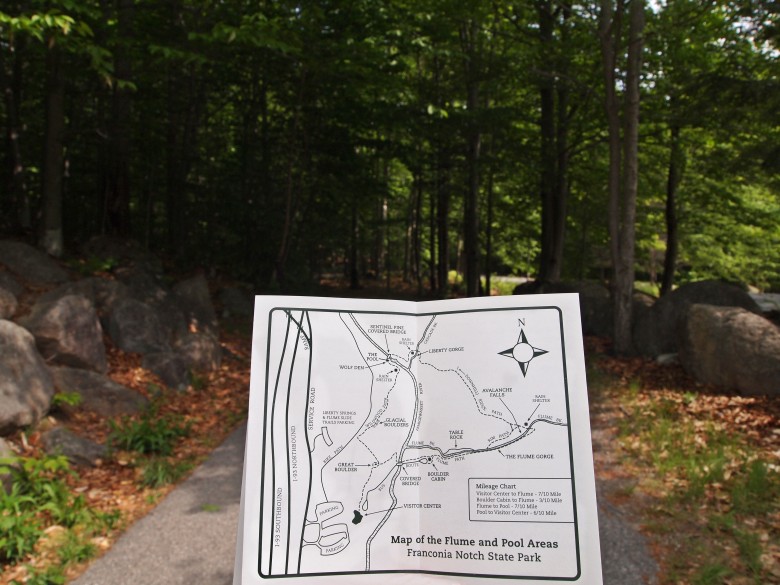
Photo Credit : Bethany Bourgault
The Flume’s history predates its “discovery” by Aunt Jess, of course. The early stages of its formation date to Jurassic times, around 200 million years ago, when the granite that makes up the walls of the Flume, then liquid and molten, was forced upwards to the earth’s surface. Molten basalt was forced upwards too, settling in the cracks of the granite as it cooled. Over many years, as the stone eroded, the finer-grained basalt washed away much faster than the granite, creating the gorge. The Ice Age, though responsible for other popular natural features of the area, like Table Rock and The Pool, had little effect on the gorge, beyond reintroducing water that furthered the basalt erosion. Water erosion and frost-heaving continue to deepen the gorge to this day.
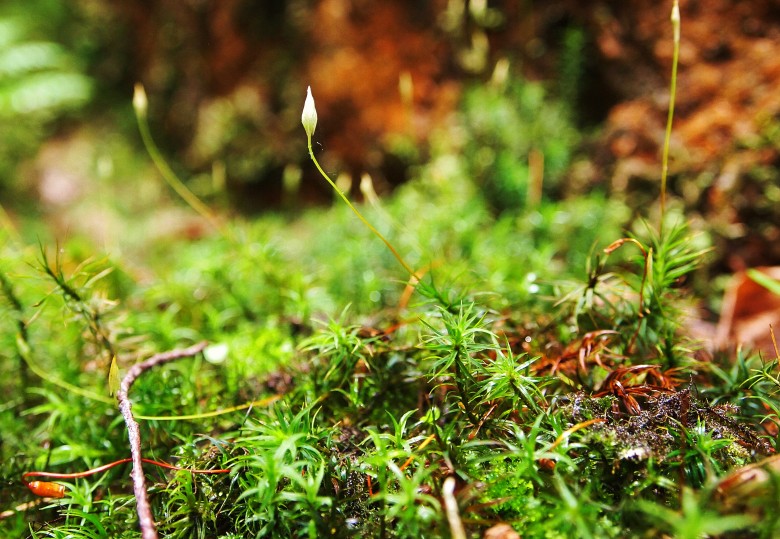
Photo Credit : Bethany Bourgault
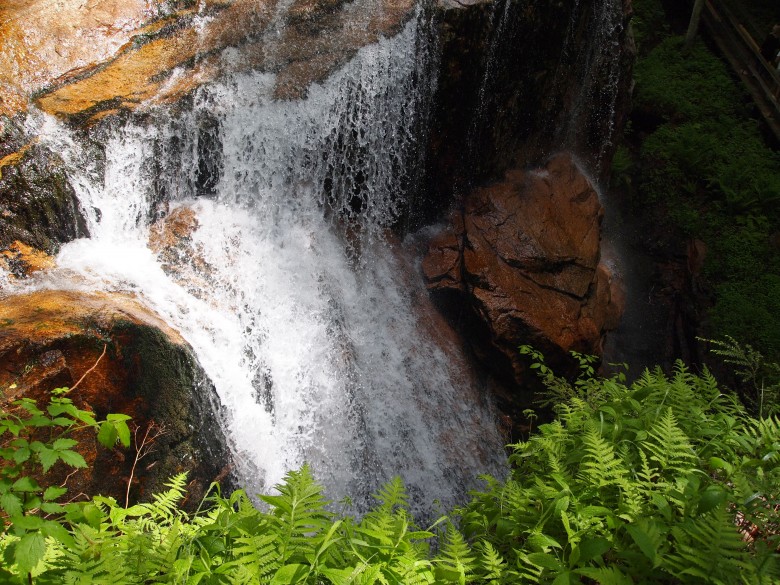
Photo Credit : Bethany Bourgault
The granite that makes up the 70- to 90-foot walls of the gorge is a specific, local type—Conway granite. Conway granite is a sometimes pinkish, mineral-heavy, biotite granite rich in thorium, a radioactive metal. (Don’t worry, it’s not radioactive enough to cause any harm!) Edward Hitchcock, professor of geology and theology and third president of Amherst College, named the granite after the nearby town of Conway in 1877. He had spent several years as a minister in Conway before beginning his geological career, so the area held a special place in his heart. The famous Old Man in the Mountain structure, which collapsed in 2003, was also made of Conway granite.
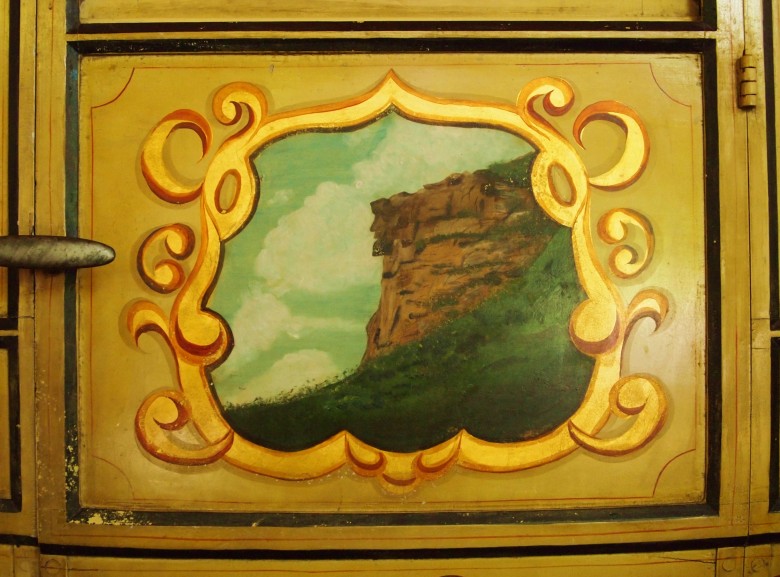
Photo Credit : Bethany Bourgault
Before venturing into the Flume itself, guests must first stop at the visitor center to purchase tickets. Plan to spend a little time here. A cafe (complete with ice cream), gift shop, information center, 20-minute film, museum-like displays, and historic Concord Coach are among the center’s attractions.
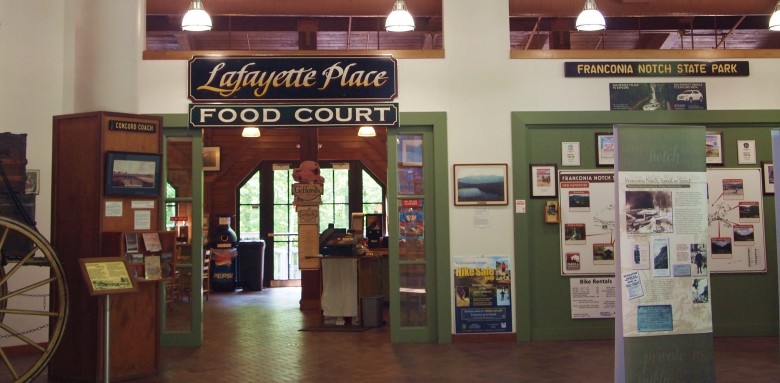
Photo Credit : Bethany Bourgault
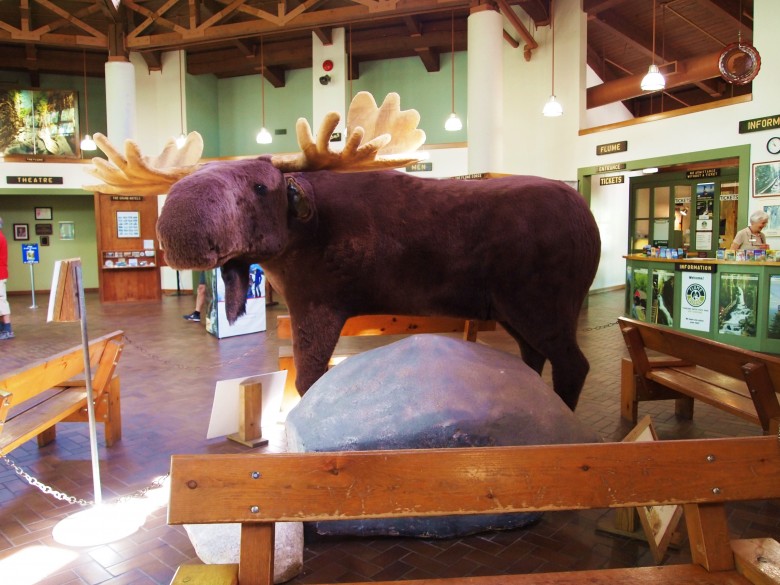
Photo Credit : Bethany Bourgault
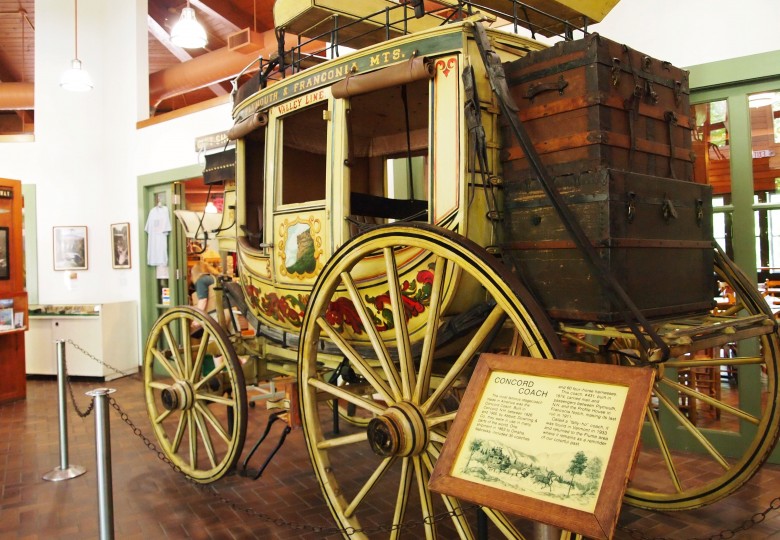
Photo Credit : Bethany Bourgault
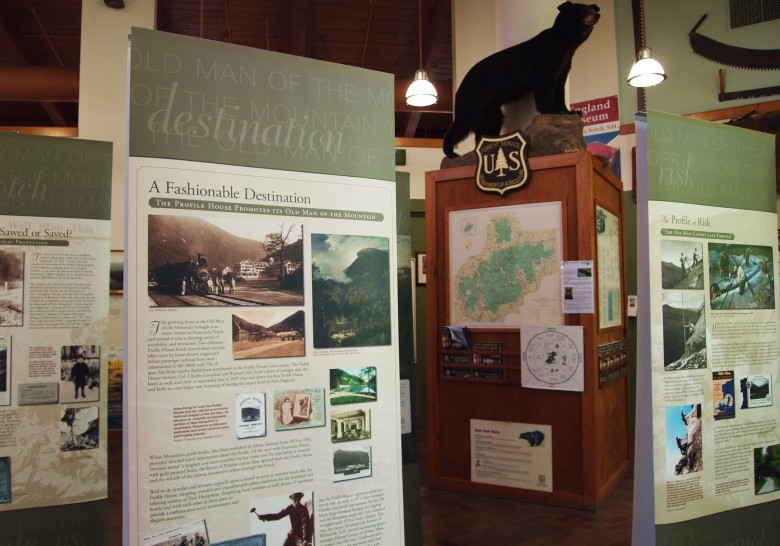
Photo Credit : Bethany Bourgault
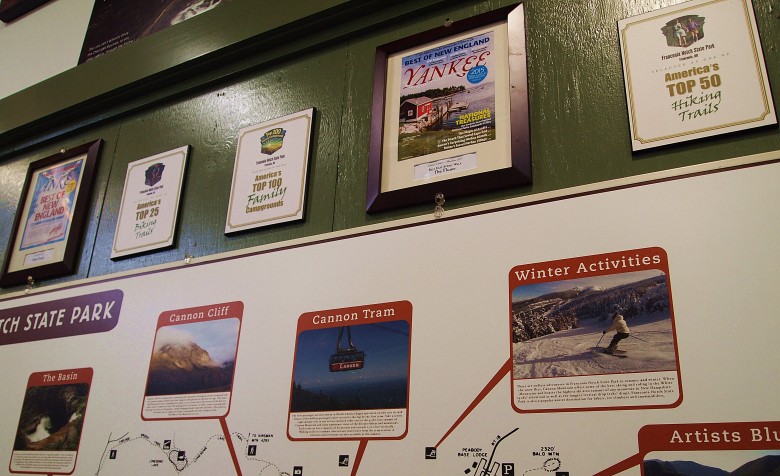
Photo Credit : Bethany Bourgault
Upon exiting the visitor center, guests are greeted with a breathtaking view of Mt. Liberty and Mt. Flume. At 4,459’ and 4,327’, respectively, these giants are incredibly popular with hikers. Many choose to hike Mt. Liberty first, then cross the peak onto Mt. Flume, since the latter’s steep cliffs can be daunting.
The passage through the Flume Gorge, however, is much easier, with helpful signs alerting hikers to fun, natural features.
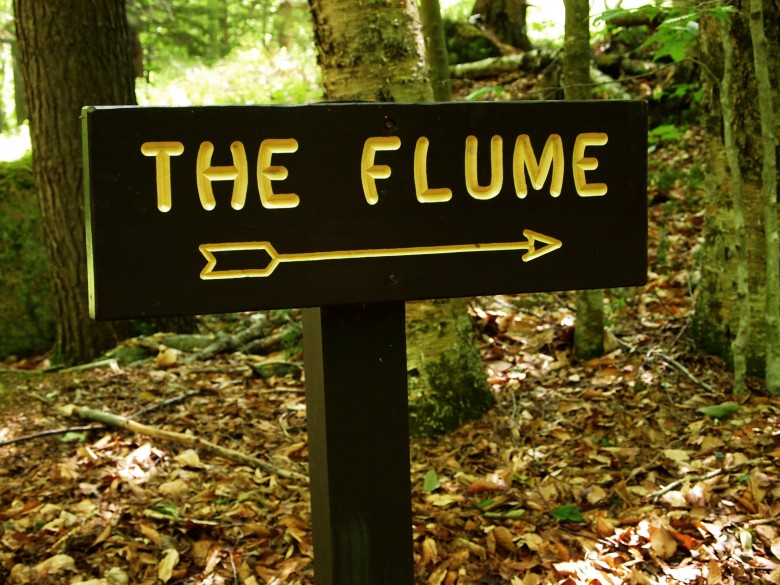
Photo Credit : Bethany Bourgault
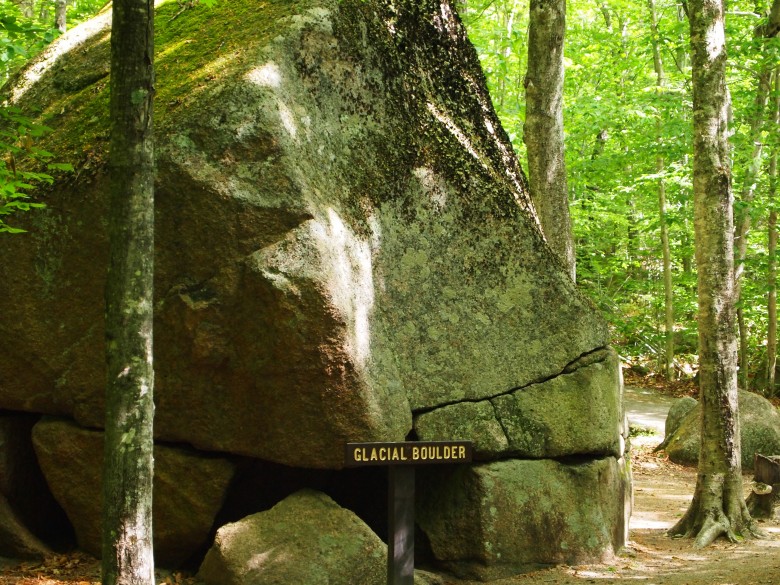
Photo Credit : Bethany Bourgault
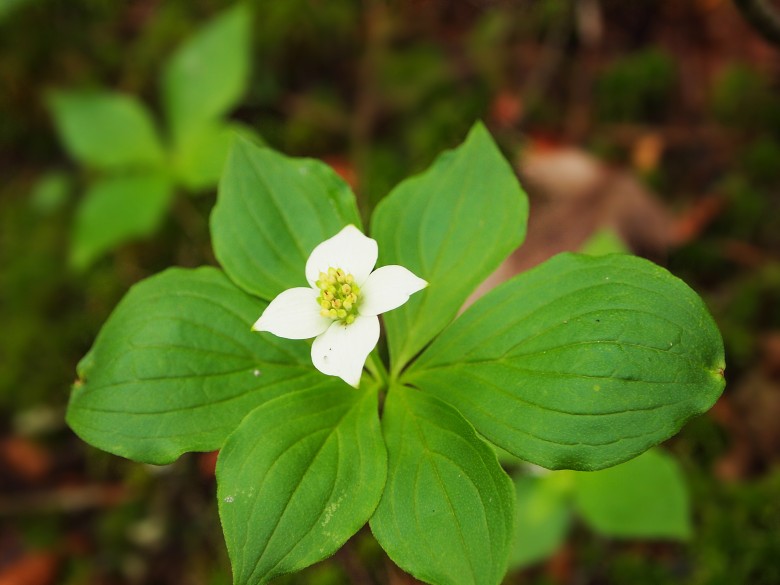
Photo Credit : Bethany Bourgault
The path leads over the Flume Covered Bridge—a favorite of photographers, historians, and visitors alike. Built in 1866, it’s one of the oldest covered bridges in the state, and stretches across the Pemigewasset (which means “swift or rapid current” in the Abenaki language) River.
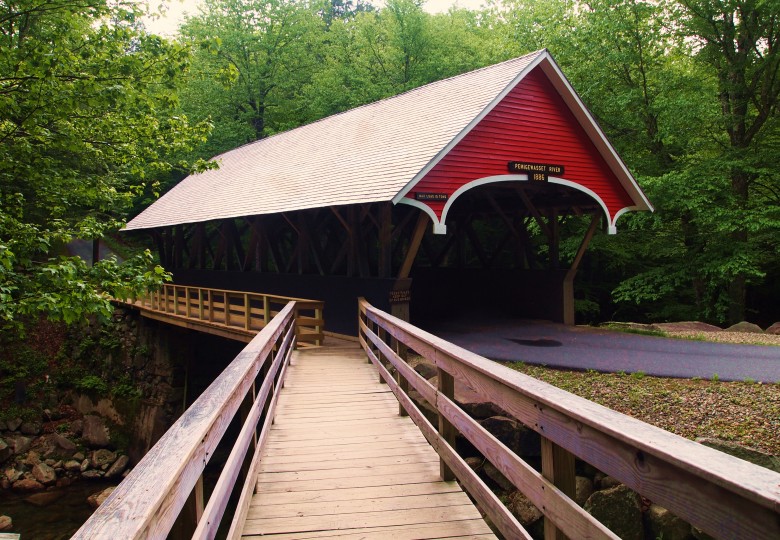
Photo Credit : Bethany Bourgault
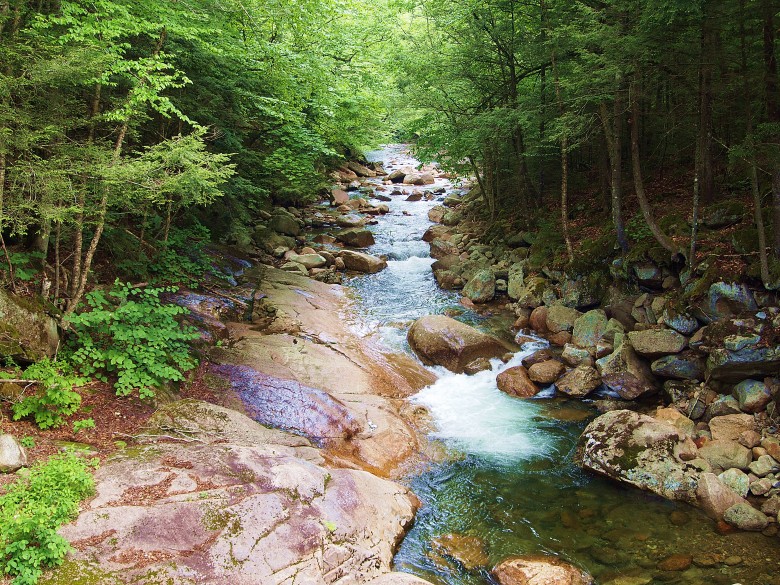
Photo Credit : Bethany Bourgault
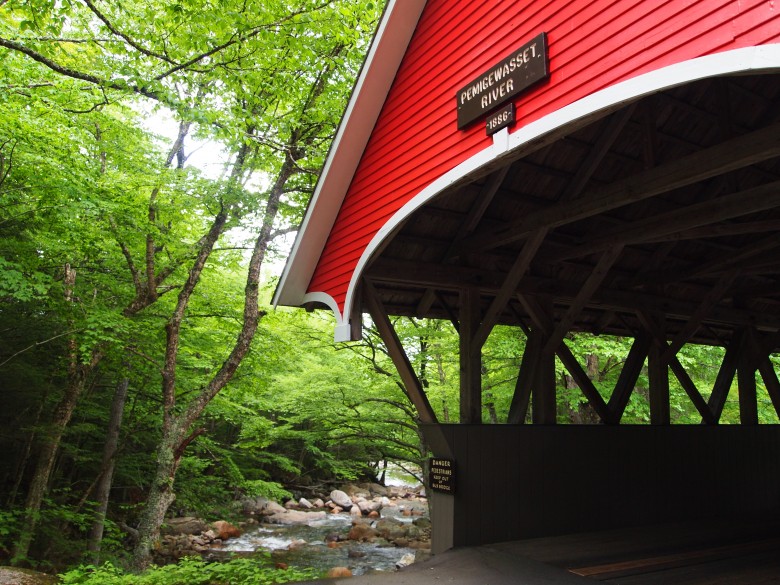
Photo Credit : Bethany Bourgault
After passing by Table Rock—a formidable granite structure created during the last ice age—visitors happen upon the main attraction. The granite walls tower on either side of the path, and cool mist tickles the ankles. The dirt path gives way to boards, bolted into the rock to allow passage over the rushing water below. This is the Flume.
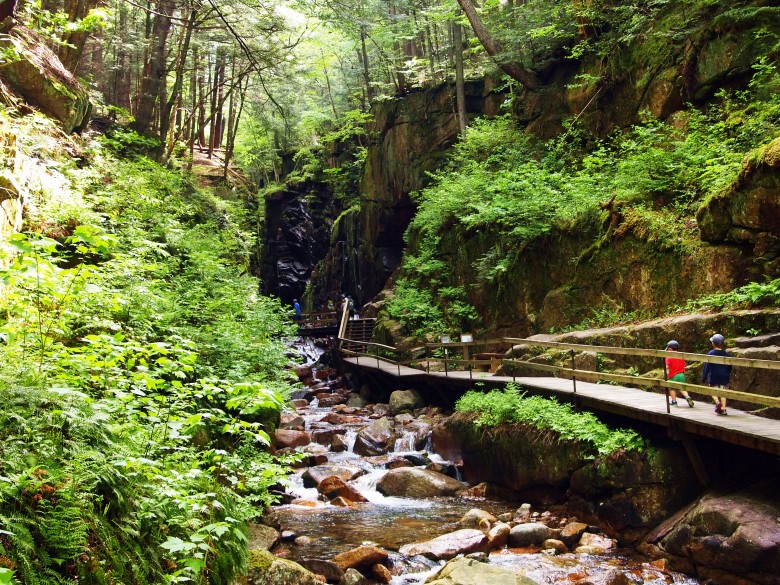
Photo Credit : Bethany Bourgault
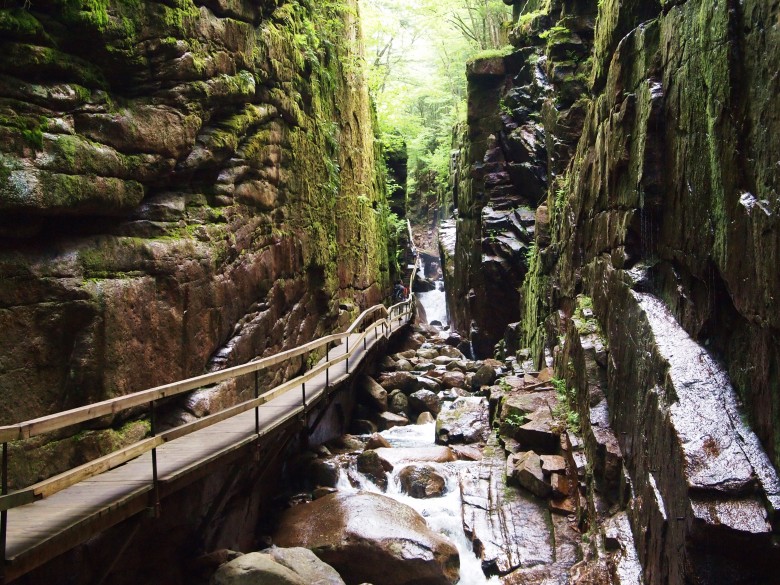
Photo Credit : Bethany Bourgault
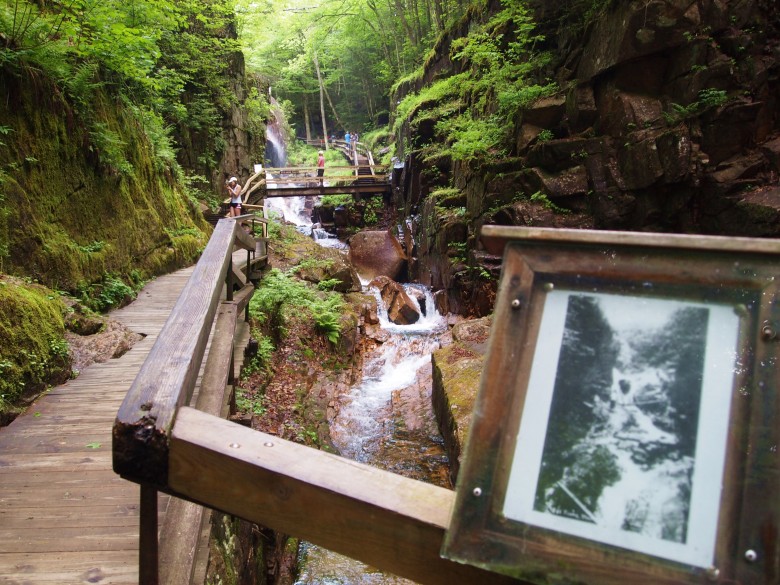
Photo Credit : Bethany Bourgault
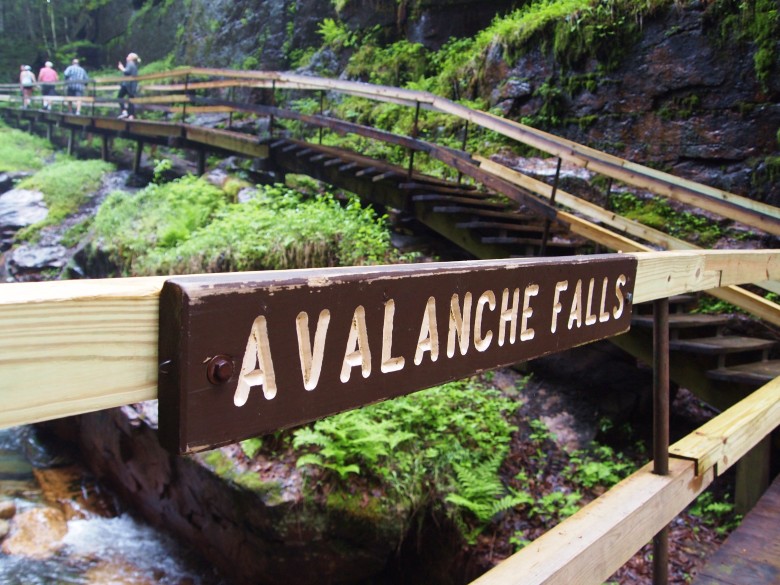
Photo Credit : Bethany Bourgault
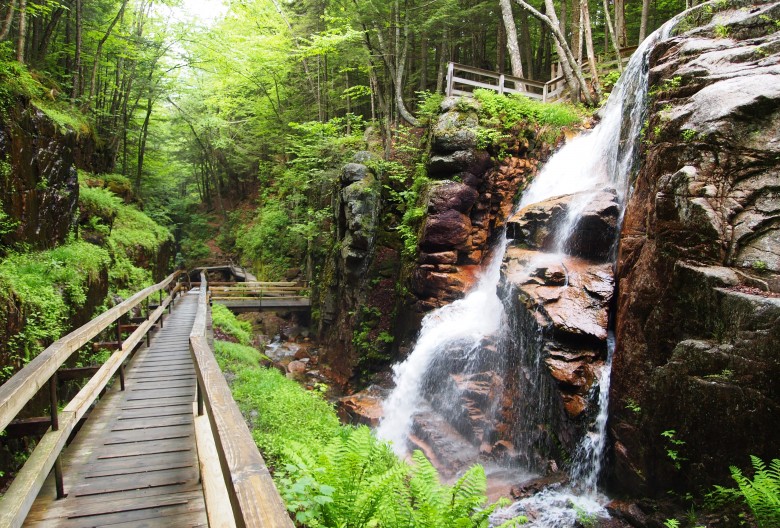
Photo Credit : Bethany Bourgault
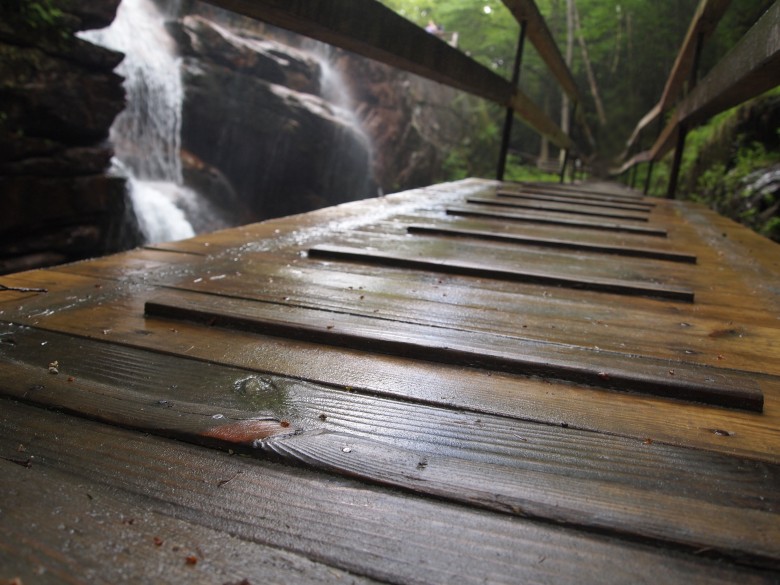
Photo Credit : Bethany Bourgault
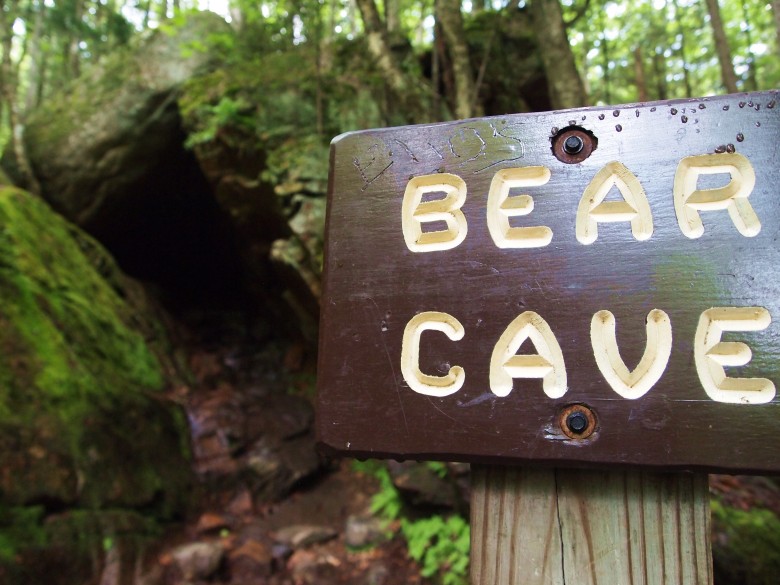
Photo Credit : Bethany Bourgault
After exiting the Flume, guests pass the smaller stream and waterfall of Liberty Gorge. Both Liberty Gorge and the Flume flow into the Pemigewasset River.
Another beloved feature along the Flume path is the Pool and Sentinel Pine Bridge. The 150-foot round Pool is 40 feet deep, and is surrounded by cliffs that measure a dizzying 130 feet high. Stretching across the western side of the pool is the Sentinel Pine Bridge—a quaint covered bridge built atop a 175-foot tall uprooted pine tree. This massive tree was believed to be one of the largest in New Hampshire in September of 1938, when it was strewn across the cliffs during a hurricane.
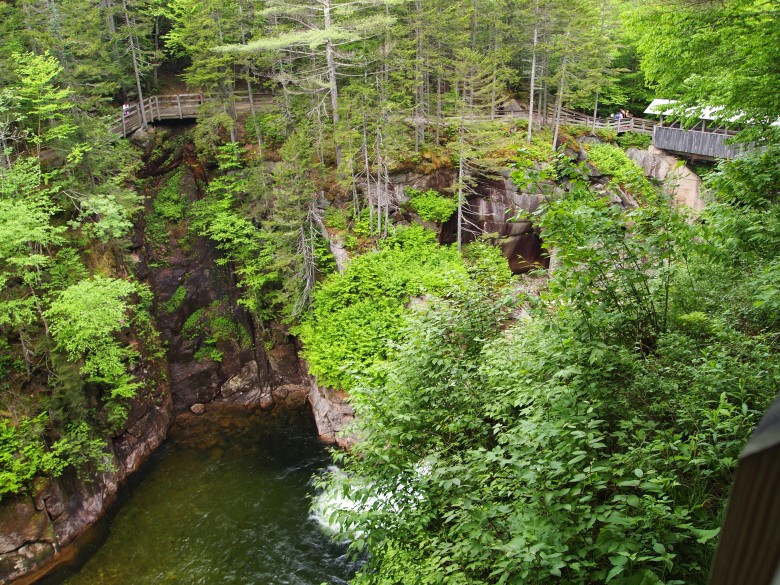
Photo Credit : Bethany Bourgault
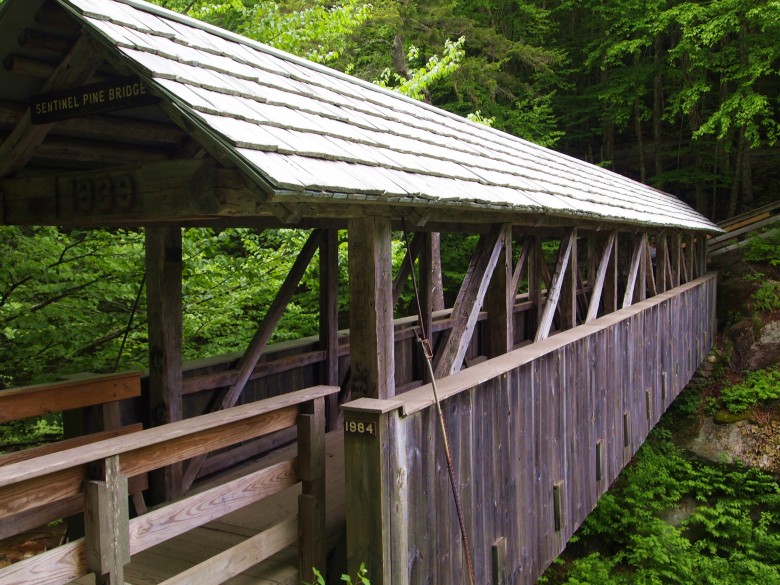
Photo Credit : Bethany Bourgault
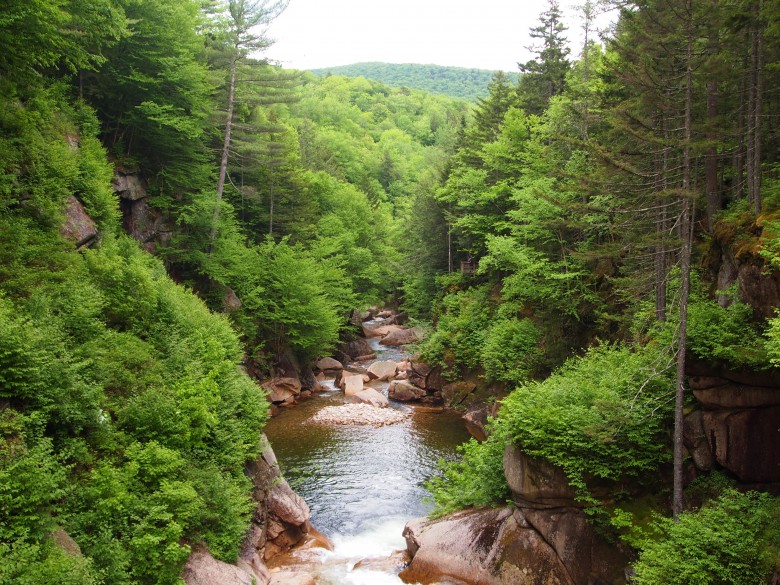
Photo Credit : Bethany Bourgault
Just beyond the bridge is a rock formation that has delighted the little ones since its addition to the trail. The Wolf’s Den is a narrow squeeze through boulders, requiring some hands-and-knees crawling. Those who opt out of this experience can meet their more adventurous companions just a few paces up the path, at the ladder where their smiling faces will emerge from the den.
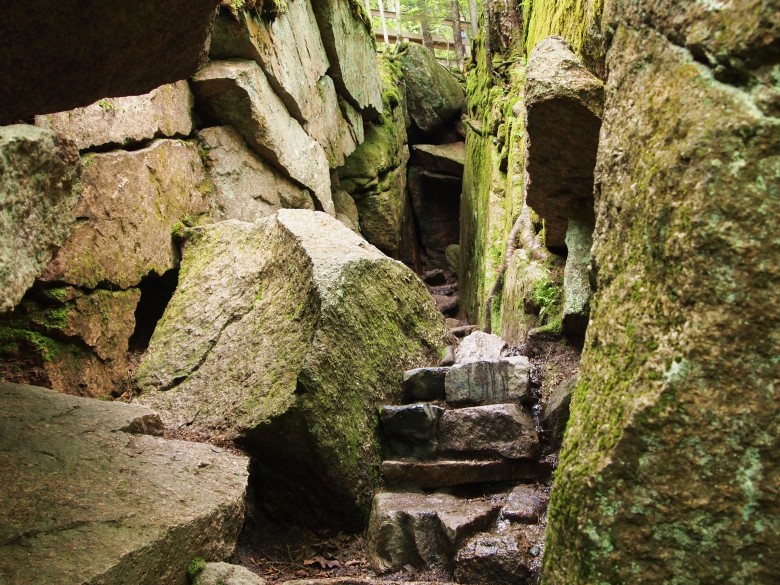
Photo Credit : Bethany Bourgault
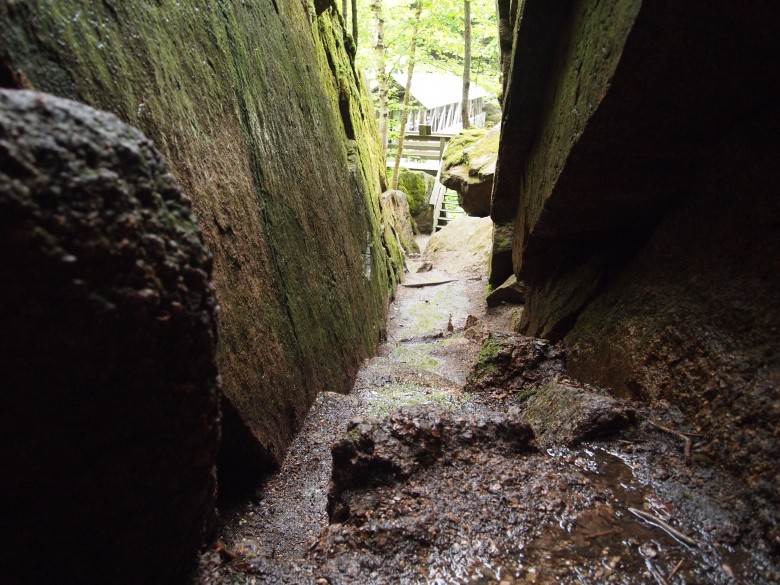
Photo Credit : Bethany Bourgault
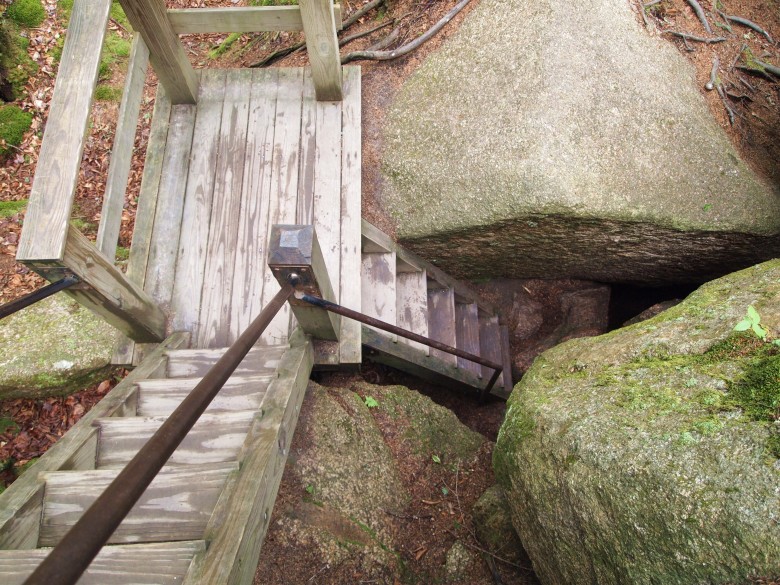
Photo Credit : Bethany Bourgault
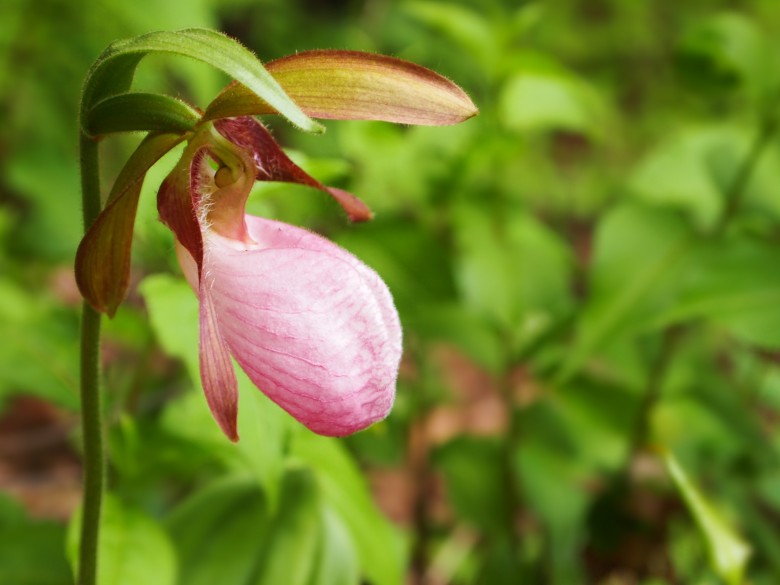
Photo Credit : Bethany Bourgault
Soon enough, the path snakes through the Glacial Boulder garden and back to the visitor center. Don’t forget to stop by the cafeteria to fuel up for your next hike—Franconia Notch is surrounded by plenty of options. Plan accordingly so you can try them all!
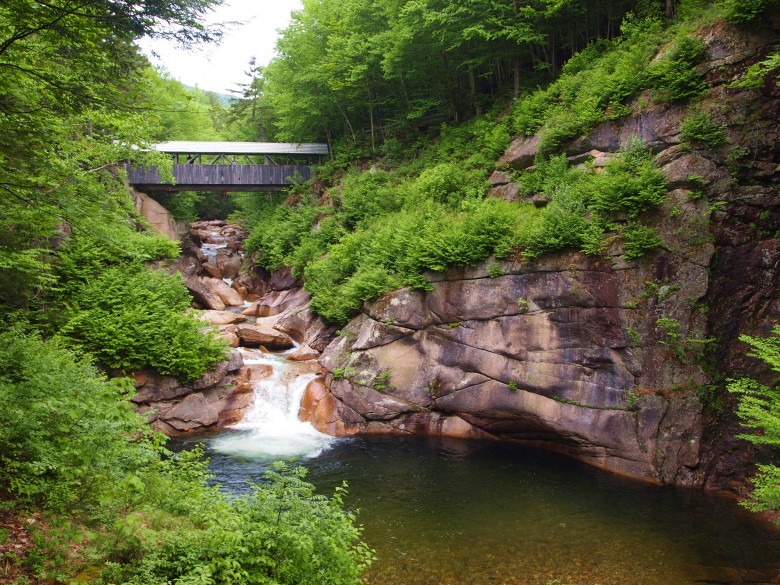
Photo Credit : Bethany Bourgault
Have you ever visited the Flume Gorge?
Flume Gorge. 852 Daniel Webster Highway, Lincoln, NH. 603-745-8391; nhstateparks.org
This post was first published in 2016 and has been updated.





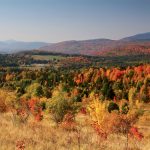
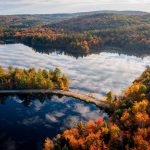
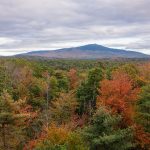
Thank you for your marvelous article about ‘The Flume’. A visit to ‘The Flume’ is a cherished childhood memory of mine. I will celebrate my 82nd birthday in September, born & raised in Manhattan and introduced to the beauty and majesty of New England by my parents. From the mid-40’s thru mid-50’s we vacationed at Newfoundland Lake for most of those summers. On my first visit to ‘The Flume’ (sometime in the ’40’s) my father bought me a pendant at the gift shop. I wear it still; a small green feldspar stone wrapped in a gold wire. Over these 70+ years I have accepted compliments on the pretty little souvenir many times and ALWAYS take the opportunity to expound on my memories of nature’s wonderful flume. Thank you for preserving this wonderful place.
hello, I have had the wonderful experience of visiting the Flume….more years ago than I would like to count. I have a question, are the trails handicapped accessible? I have a grandson who is confined to a wheelchair and would like to take him and his siblings for a jaunt. Thank you in advance for your attention. I realize that some of the trails would not work for a wheelchair but was wondering if he could still benefit from the experience.
You can get a wheelchair thru The Flume Bridge, into the small building with simple displays and partway up the trail but where the stairs begin it is not accessible. Back to the Entrance Building for an in depth examination of the museum quality displays and a comfortable place to await the return of the rest of your group.
Breathlessly memorable!
Do you allow dogs on the trails
No they don’t, which is stupid, especially since the last time I walked the Flume I saw a guy relieving himself over a railing into the water with his buddies laughing at him while we were worried sick (even though it was Spring and the weather cool) about having to leave our dog in the car and only walked for a few minutes. That’s all it took, that was years ago and we never went back. People cause more damage than a pet ever could. New Hampshire should rethink their policy on pets in state parks.
The Flume and the entire area is a wonderful place for a family trip. The park can’t be held responsible for humans who act with little regard for the environment. As for your dog, if you had read the policy before making the trip you wouldn’t have needed to leave him/her in the car.
Most dog owners will not want to a place that is meant for a long walk without thier dog
Now I get it alot of dog owners are scum who think they to good to pick up shit
They should not have dogs but for those of us who do pick up after our dog it sucks to not be able bring em on a hike
Just for the record, it’s Newfound Lake (not “Newfoundland Lake.” Maybe nit picking, but I do live in New Hampshire and, well……
Wow–this brings back memories! In 1983 my mother, grandmother, and I took a trip to NH in the Fall. I just looked back at my pictures of The Flume. I hadn’t looked at them in years. There is Grammy in that damn checkered raincoat she wore everywhere! It was kind of a joke with my mom and aunts. (I have a picture of her a few years later on Monhegan Island in that same coat but forgot about this NH trip!!)
This was just a wonderful nostalgia jogging trip for me. When I was about twelve years old my brother and I ventured up through The Flume. It was such a delight to see it once more. I am now pushing into my eightieth year and it was the same now as it was then . . . the splendor of nature’s beauty.
Never been. Would like to go. How long a walk. I am in my 80’s.